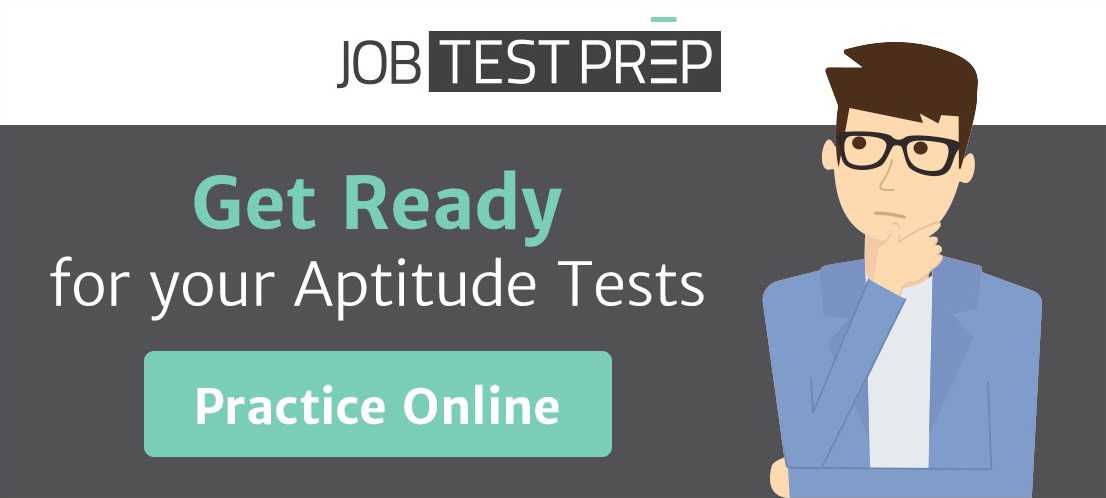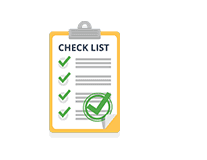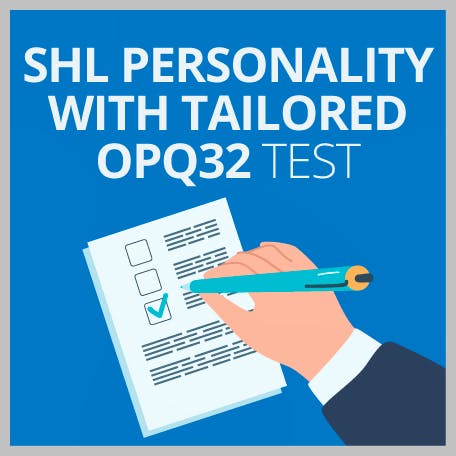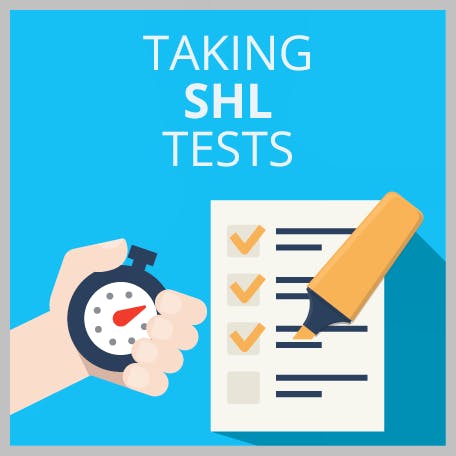How to Cheat on SHL CEB Reasoning Tests (and Why You Shouldn't!)
Updated November 18, 2023
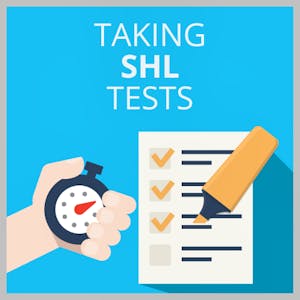

Are you considering cheating on your upcoming SHL tests?
In this full disclosure article, I’ll tell you why people cheat on tests, how people cheat, and whether or not it’s worth doing..
Our view?
Don't cheat!
Practice... it's the only legitimate way to improve your scores, you'll sleep better at night and probably get better results in your tests too.
Still want to read about how to cheat on a test?
OK.
Here goes!
PRO TIP:
Visit JobTestPrep for the best online Psychometric Test practice.
Test packs start from £39 with a money back guarantee.
Online aptitude tests can be extremely hard. And they’re often the first gatekeepers on the path to the best graduate jobs.
Cheating can become very tempting. It seems easy enough and the likelihood of getting caught, is low.
But is it really the right thing to do?
First: Why Do People Cheat on Reasoning Tests?
On the face of it, the answer seems obvious: to get ahead in the recruitment process.
Rightly or wrongly, many see aptitude tests such as SHL/CEB as unfair – a way to filter out candidates in bulk that doesn’t fully take into account each person’s strengths.
How can some sums decide whether a person will be a good client-facing auditor?
In this line of thought, cheating is simply a way to rebalance an unfair system weighted heavily against candidates.
Some will also feel that they have some great strengths to bring to the role.
But those strengths aren’t appreciated by the aptitude tests, or perhaps that person gets nervous during exams and is likely to do less well than they should.
It can be easy to think, therefore, that it’s okay to cheat through this first hurdle, because you’ll make up for it by being exceptional later in the process.
Of course, some just don’t care. Cheating gains them an advantage, and it’s as simple as that.
A WikiJob survey found that 63% of those asked whether they believe aptitude tests are a good way to select the best candidates for a job said that they didn’t help.
Only 18% thought they were useful!
When it came to cheating, 7% of respondents said they had cheated, and a further 15% had considered it.
Notably, out of the cheaters questioned, 88% said their outcome was positive.
This survey also asked how people cheated.
The most popular, at 60%, was getting another person (either paid for or just a friend) to take the test for them.
The second most popular, at 18%, was accessing the question bank in some way.
How to Cheat on SHL Test
Let’s go through some of the methods people use to cheat on aptitude tests.
We’ll also look at what companies do to try and prevent these methods, and what the consequences are.
Step 1. Get Someone Else to Do It
Cited as the most popular method of cheating on the WikiJob survey, the main method of cheating is to get someone else to do it for you.
They can either be a friend who will do it for a free, or you can use a plethora of websites whose help you pay for.
Here are some examples:
Note that I won't even link out to these websites, that's how dodgy they are!
- AptitudeTestPass
- NoNeedToStudy
- PassPsychometric
- AllHomeWork
- BoostMyGrade
These are by no means high quality, super ethical businesses! And please do be aware we cannot verify the legitimacy or reliability of any of the listed websites.
These are dodgy and potentially dangerous resources. Use at your own risk.
To find out more, we reached out to some of these websites for comment on why they offer their service and whether they consider it cheating.
One manager, who wished to remain anonymous, said:
“As far as what my thoughts are on the ethics of things, well this site is my main source of income as I have a sick kid. I don’t think too much about it to be honest. Maybe I should but I don’t really have time.”
Some websites also write up their reasoning in an ‘ethos’ page. One offers a four-point counter-argument to common accusations levied at them.
Amongst other points, they say:
“Society has allowed it to become an accepted fact that those who can pay will always have an edge over those who can’t. And as such No Need To Study is merely fundamental market economics in action.
“The truth is students who work with us are merely people who face harsh realities and take decisive decisions.
“We do it in a way that students who use us aren’t going to go out in the world and do any actual damage, our no med school policy and such were created specifically with this in mind."
It strikes me that these businesses don’t feel too proud of themselves. If you use them, you might not feel too proud of yourself either.
Step 2. Team Effort
This is similar to the first method, but watered down.
Instead of someone taking the test for you, that person (or a group of people) help you with the test as you take it.
So a question comes up and you discuss it together, eventually settling on an answer.
Although of course still disallowed, this can feel less like cheating to many, as ultimately you have the final say over the answer.
The downside to this method is that in tests with stricter time limits, there might not be real time for discussion and it can instead prove detrimental.
Step 3. The SHL Question Bank
SHL/CEB tests typically work using banks of questions.
If there are 20 questions on a test, those 20 might be randomly chosen from a question bank of 200 that changes for each intake.
If you can access at least a substantial portion of that question bank before you take the test, then you can prepare the answers in advance, significantly increasing your chance of scoring highly.
The question then becomes how do you access that question bank.
A method that works with smaller question banks (and to smaller advantage) is to take the test normally – taking screen shots of each question – and then turning off your internet somewhere towards the end.
You can normally then contact the company’s support, explain that your internet went down while taking the test and be allowed to start again.
If the question bank is small enough, there’s a fair chance that some of the questions you screenshotted will come up again.
Alternatively, you can create multiple fake applications that progress to the test, taking screenshots of each question in each test you take.
Employer Countermeasures and Consequences
For all methods, the most common form of deterrent and countermeasure is an in-person resit.
Not all companies will do this, but it can be difficult to tell which do and which don’t. And it can change for each intake..
Typically at the assessment centre, you will be asked to take one or more of the tests again while supervised.
Of course, they don’t expect candidates to score exactly the same as their online attempt. If you fail that test, it’s likely to be the end of the road anyway.
But if you pass but the results of your online and offline tests are drastically different, it will still raise alarm bells.
Employers could then also consider other evidence – such as the IP address of the device you took your test on – to determine whether it’s likely that you cheated.
There are plenty of reasons why you might have performed very differently in person to your online test: anxiety, illness, or just a bad day.. But employers are familiar with cheaters.
Do you really want your potential employer to even consider you as someone who had to cheat on your aptitude tests because you didn’t think you’d make the grade?
And remember, it’s not exactly a fair court of law.
If a potential employer suspects you of cheating, at any stage of the interview process (or even when you’re employed), they are within their rights to simply remove you from the process and perhaps also blacklist you from applying again.
For the third method – accessing the question bank – most companies counteract this by having a sufficiently large question bank so that the chances of receiving the same question again is very low, and therefore won’t make a significant difference.
A more advanced countermeasure would be to track the questions that have been sent to your device, application, and/or IP address and remove them from the bank for any future attempts.
Is Cheating Worth It?
Unsurprisingly, it’s difficult to get reliable information on exactly what anti-cheating methods a particular company uses.
That means that cheating will always be a risk.
Ultimately, you can proceed in three ways:
- Take the risk of cheating
- Apply to enough companies that there’s a good chance you’ll succeed at least once
- Don’t cheat, practice instead
If you do cheat, you must accept that there’s a chance you’ll get found out. And if that happens, it’s highly likely you’ll end up blacklisted from the company of your dreams.
If you’re less concerned about working for a specific company, you can take a shotgun approach: apply to as many firms as possible, cheating on each, and hope you slip through one of the nets.
This method will be expensive if you pay for the tests to be taken.
The chances of getting caught if companies actively try is quite high.
It’s difficult to get around an in-person resit, or a question bank of 1,000 questions.
You will likely only be successful with companies that don’t bother too much with anti-cheat measures.
There is a further risk, too. Getting the job isn’t the end of the process.
If your mathematics skills are weak and they’re crucial to your job, then faking your way through the aptitude test might not help you.
If it quickly becomes clear that you’re hopeless with numbers, your job might not be safe.
What if You Want to Guarantee Passing Your Reasoning Tests but You Don’t Want to Cheat?
Plenty of websites offer information and practice materials for the tests (including our free tests here).
Graduate Monkey – as an example – also offers a coaching service if you’d like a more tailored approach to your practice.
While these methods do require a little more effort than learning how to “CEB cheat” your way to recruitment or the cheating methods we’ve explained, they do offer several good advantages.
- You don’t need to worry about getting caught
- They are much cheaper than paying for someone to take your test for you
- The practice and knowledge will stay with you for each test you end up taking, not just for one
For these reasons, while cheating might be useful in the short term – albeit risky – old fashioned practice is much more useful in the long term.
You won’t have to repeatedly pay for someone to take the test for you and that’s worth bearing in mind because the aptitude tests are not the only part of the application.
Even a top scoring candidate can fall down in other areas – the interview, assessment centre, etc. – and if you need to start another application you’ll be back to square one.
If you’ve practiced the tests extensively, you won’t be back at square one – a lot of the preparation will already be done.
So should you cheat on your upcoming SHL Aptitude Tests?
Only you can answer that question.
But our recommendation is of course, definitely not!
You can easily guarantee your success with honest practice and your skills will last for life.
Get started with our free tests right now.
And for more serious training, visit JobTestPrep who offer a range of tailored SHL practice tests, guaranteed to improve your ability - click here to visit their website.
The SHL CEB Reasoning tests are the most widespread psychometric assessment test used in employee recruitment.
They test the candidates' diagrammatic reasoning, inductive reasoning, verbal reasoning, numerical reasoning, mechanical reasoning, and spatial reasoning skills.
These are used for finding candidates with the best skills to fulfill specific roles within a company.
Due to their time limit and question types (which often differ from what candidates have encountered before), SHL CEB Reasoning tests can be challenging to pass.
That said, with proper preparation and a methodical approach during the test, you can increase your efficacy and pass the tests you need to obtain the desired position.
The best place to prepare for SHL CEB Reasoning tests is online. You can find plenty of practice tests and study guides on the internet and use them to prepare for the assessment.
It's recommended to practice in your home, away from all the distractions, as this will give you the best chance for successful preparation.
CEB SHL stands for the group of assessment tests developed by SHL, which was acquired by CEB (also known as Corporate Executive Board).
SHL tests were developed in the UK, but they've become the industry standard for many employers across the world.
They're provided for employers looking for graduates with the best skills to match their future roles. It also helps employers find the right employees within the company to fulfill more prominent roles.
These inductive reasoning tests evaluate your critical thinking skills, including deductive and logical abilities.
You'll be given statements which you need to decide whether they prove, disprove or support a piece of previous information. The best way to approach these is by thinking logically and methodically.
This will allow you to spot the patterns or conclusions which answer the question while working against the clock.
While there are a few common ways to cheat on SHL CEB tests (having help while taking the test, having someone to take instead of you, or creating a question database)and a lot of risky advice on how to cheat on a test, it's never recommended to cheat on these tests.
By trying to cheat, you’re risking getting caught and the employers taking measures against you and potentially throwing away money (if you hire someone).
Besides, by cheating, you can obtain a position you don't have sufficient skills for, and your employer will notice this soon enough.
If you're taking the tests as part of the recruitment process, the hiring manager will probably share your test results with you soon after taking the test.
They will also share the following steps depending on whether you've passed or failed the tests.
If you're taking the tests as part of a current employer evaluation, your employer will provide feedback on your results.
You'll need to have an SHL account to access the feedback on the Assessment Home Page.
You can get example questions from plenty of online sites that help prepare for psychometric tests.
JobTestPrep is one example.
You can also find plenty of practice questions and tests for the CEB Reasoning test on the official SHL website.
Most of the SHL CEB Reasoning tests have a strict time limit. This represents an enormous challenge for candidates with inadequate preparation. The time limit for each test depends on the specific types of reasoning test you're taking and the employer's requirements for speed and accuracy.
These tests are employed by companies looking for the most appropriate candidates for their open roles.
These are typically high-profile companies looking to fill very specific positions that require a set of technical skills.
The lists of these companies include Microsoft, Ford Motor, Exxon Mobil, JP Morgan, Barclays and more.
Your marks on the SHL CEB Reasoning test will be presented as a percentile score.
The average passing score is between 40 and 50, but this score doesn't guarantee that you'll obtain the position you've applied for.
Your results will be compared to the rest of the candidates and expressed in percentiles. If you've scored between 73 and 90 points, you'll have a good score, but to ensure your dream position, you should aim to score as high as possible.
You can get a comprehensive study guide for the SHL CEB Reasoning tests from websites that offer free or paid mock tests and practice questions.
Recruitment centres and potential or current employers may also be able to help you prepare. SHL also provides a guide for preparing for all their assessments, including the reasoning tests.

